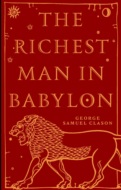Kitabı oku: «Persuasion / Доводы рассудка», sayfa 3
Chapter V
On the morning appointed for Admiral and Mrs Croft's seeing Kellynch Hall, Anne found it most natural to take her almost daily walk to Lady Russell's, and keep out of the way till all was over; when she found it most natural to be sorry that she had missed the opportunity of seeing them.
This meeting of the two parties proved highly satisfactory, and decided the whole business at once. Each lady was previously well disposed for an agreement, and saw nothing, therefore, but good manners in the other; and with regard to the gentlemen, there was such an hearty good humour, such an open, trusting liberality on the Admiral's side, as could not but influence Sir Walter, who had besides been flattered into his very best and most polished behaviour by Mr Shepherd's assurances of his being known, by report, to the Admiral, as a model of good breeding.
The house and grounds, and furniture, were approved, the Crofts were approved, terms, time, every thing, and every body, was right; and Mr Shepherd's clerks were set to work, without there having been a single preliminary difference to modify of all that “This indenture sheweth.”
Sir Walter, without hesitation, declared the Admiral to be the best-looking sailor he had ever met with, and went so far as to say, that if his own man might have had the arranging of his hair, he should not be ashamed of being seen with him any where; and the Admiral, with sympathetic cordiality, observed to his wife as they drove back through the park, “I thought we should soon come to a deal, my dear, in spite of what they told us at Taunton. The Baronet will never set the Thames on fire, but there seems to be no harm in him.”-reciprocal compliments, which would have been esteemed about equal.
The Crofts were to have possession at Michaelmas; and as Sir Walter proposed removing to Bath in the course of the preceding month, there was no time to be lost in making every dependent arrangement.
Lady Russell, convinced that Anne would not be allowed to be of any use, or any importance, in the choice of the house which they were going to secure, was very unwilling to have her hurried away so soon, and wanted to make it possible for her to stay behind till she might convey her to Bath herself after Christmas; but having engagements of her own which must take her from Kellynch for several weeks, she was unable to give the full invitation she wished, and Anne though dreading the possible heats of September in all the white glare of Bath, and grieving to forego all the influence so sweet and so sad of the autumnal months in the country, did not think that, everything considered, she wished to remain. It would be most right, and most wise, and, therefore must involve least suffering to go with the others.
Something occurred, however, to give her a different duty. Mary, often a little unwell, and always thinking a great deal of her own complaints, and always in the habit of claiming Anne when anything was the matter, was indisposed; and foreseeing that she should not have a day's health all the autumn, entreated, or rather required her, for it was hardly entreaty, to come to Uppercross Cottage, and bear her company as long as she should want her, instead of going to Bath.
“I cannot possibly do without Anne,” was Mary's reasoning; and Elizabeth's reply was, “Then I am sure Anne had better stay, for nobody will want her in Bath.”
To be claimed as a good, though in an improper style, is at least better than being rejected as no good at all; and Anne, glad to be thought of some use, glad to have anything marked out as a duty, and certainly not sorry to have the scene of it in the country, and her own dear country, readily agreed to stay.
This invitation of Mary's removed all Lady Russell's difficulties, and it was consequently soon settled that Anne should not go to Bath till Lady Russell took her, and that all the intervening time should be divided between Uppercross Cottage and Kellynch Lodge.
So far all was perfectly right; but Lady Russell was almost startled by the wrong of one part of the Kellynch Hall plan, when it burst on her, which was, Mrs Clay's being engaged to go to Bath with Sir Walter and Elizabeth, as a most important and valuable assistant to the latter in all the business before her. Lady Russell was extremely sorry that such a measure should have been resorted to at all, wondered, grieved, and feared; and the affront it contained to Anne, in Mrs Clay's being of so much use, while Anne could be of none, was a very sore aggravation.
Anne herself was become hardened to such affronts; but she felt the imprudence of the arrangement quite as keenly as Lady Russell. With a great deal of quiet observation, and a knowledge, which she often wished less, of her father's character, she was sensible that results the most serious to his family from the intimacy were more than possible. She did not imagine that her father had at present an idea of the kind. Mrs Clay had freckles, and a projecting tooth, and a clumsy wrist, which he was continually making severe remarks upon, in her absence; but she was young, and certainly altogether well-looking, and possessed, in an acute mind and assiduous pleasing manners, infinitely more dangerous attractions than any merely personal might have been. Anne was so impressed by the degree of their danger, that she could not excuse herself from trying to make it perceptible to her sister. She had little hope of success; but Elizabeth, who in the event of such a reverse would be so much more to be pitied than herself, should never, she thought, have reason to reproach her for giving no warning.
She spoke, and seemed only to offend. Elizabeth could not conceive how such an absurd suspicion should occur to her, and indignantly answered for each party's perfectly knowing their situation.
“Mrs Clay,” said she, warmly, “never forgets who she is; and as I am rather better acquainted with her sentiments than you can be, I can assure you, that upon the subject of marriage they are particularly nice, and that she reprobates all inequality of condition and rank more strongly than most people. And as to my father, I really should not have thought that he, who has kept himself single so long for our sakes, need be suspected now. If Mrs Clay were a very beautiful woman, I grant you, it might be wrong to have her so much with me; not that anything in the world, I am sure, would induce my father to make a degrading match, but he might be rendered unhappy. But poor Mrs Clay who, with all her merits, can never have been reckoned tolerably pretty, I really think poor Mrs Clay may be staying here in perfect safety. One would imagine you had never heard my father speak of her personal misfortunes, though I know you must fifty times. That tooth of hers and those freckles. Freckles do not disgust me so very much as they do him. I have known a face not materially disfigured by a few, but he abominates them. You must have heard him notice Mrs Clay's freckles.”
“There is hardly any personal defect,” replied Anne, “which an agreeable manner might not gradually reconcile one to.”
“I think very differently,” answered Elizabeth, shortly; “an agreeable manner may set off handsome features, but can never alter plain ones. However, at any rate, as I have a great deal more at stake on this point than anybody else can have, I think it rather unnecessary in you to be advising me.”
Anne had done; glad that it was over, and not absolutely hopeless of doing good. Elizabeth, though resenting the suspicion, might yet be made observant by it.
The last office of the four carriage-horses was to draw Sir Walter, Miss Elliot, and Mrs Clay to Bath. The party drove off in very good spirits; Sir Walter prepared with condescending bows for all the afflicted tenantry and cottagers who might have had a hint to show themselves, and Anne walked up at the same time, in a sort of desolate tranquillity, to the Lodge, where she was to spend the first week.
Her friend was not in better spirits than herself. Lady Russell felt this break-up of the family exceedingly. Their respectability was as dear to her as her own, and a daily intercourse had become precious by habit. It was painful to look upon their deserted grounds, and still worse to anticipate the new hands they were to fall into; and to escape the solitariness and the melancholy of so altered a village, and be out of the way when Admiral and Mrs Croft first arrived, she had determined to make her own absence from home begin when she must give up Anne. Accordingly their removal was made together, and Anne was set down at Uppercross Cottage, in the first stage of Lady Russell's journey.
Uppercross was a moderate-sized village, which a few years back had been completely in the old English style, containing only two houses superior in appearance to those of the yeomen and labourers; the mansion of the squire, with its high walls, great gates, and old trees, substantial and unmodernized, and the compact, tight parsonage, enclosed in its own neat garden, with a vine and a pear-tree trained round its casements; but upon the marriage of the young 'squire, it had received the improvement of a farm-house elevated into a cottage, for his residence, and Uppercross Cottage, with its veranda, French windows, and other prettiness, was quite as likely to catch the traveller's eye as the more consistent and considerable aspect and premises of the Great House, about a quarter of a mile farther on.
Here Anne had often been staying. She knew the ways of Uppercross as well as those of Kellynch. The two families were so continually meeting, so much in the habit of running in and out of each other's house at all hours, that it was rather a surprise to her to find Mary alone; but being alone, her being unwell and out of spirits was almost a matter of course. Though better endowed than the elder sister, Mary had not Anne's understanding nor temper. While well, and happy, and properly attended to, she had great good humour and excellent spirits; but any indisposition sunk her completely. She had no resources for solitude; and inheriting a considerable share of the Elliot self-importance, was very prone to add to every other distress that of fancying herself neglected and ill-used. In person, she was inferior to both sisters, and had, even in her bloom, only reached the dignity of being “a fine girl.” She was now lying on the faded sofa of the pretty little drawing-room, the once elegant furniture of which had been gradually growing shabby, under the influence of four summers and two children; and, on Anne's appearing, greeted her with -
“So, you are come at last! I began to think I should never see you. I am so ill I can hardly speak. I have not seen a creature the whole morning!”
“I am sorry to find you unwell,” replied Anne. “You sent me such a good account of yourself on Thursday!”
“Yes, I made the best of it; I always do: but I was very far from well at the time; and I do not think I ever was so ill in my life as I have been all this morning: very unfit to be left alone, I am sure. Suppose I were to be seized of a sudden in some dreadful way, and not able to ring the bell! So, Lady Russell would not get out. I do not think she has been in this house three times this summer.”
Anne said what was proper, and enquired after her husband. “Oh! Charles is out shooting. I have not seen him since seven o'clock. He would go, though I told him how ill I was. He said he should not stay out long; but he has never come back, and now it is almost one. I assure you, I have not seen a soul this whole long morning.”
“You have had your little boys with you?”
“Yes, as long as I could bear their noise; but they are so unmanageable that they do me more harm than good. Little Charles does not mind a word I say, and Walter is growing quite as bad.”
“Well, you will soon be better now,” replied Anne, cheerfully. “You know I always cure you when I come. How are your neighbours at the Great House?”
“I can give you no account of them. I have not seen one of them to-day, except Mr Musgrove, who just stopped and spoke through the window, but without getting off his horse; and though I told him how ill I was, not one of them have been near me. It did not happen to suit the Miss Musgroves, I suppose, and they never put themselves out of their way.”
“You will see them yet, perhaps, before the morning is gone. It is early.”
“I never want them, I assure you. They talk and laugh a great deal too much for me. Oh! Anne, I am so very unwell! It was quite unkind of you not to come on Thursday.”
“My dear Mary, recollect what a comfortable account you sent me of yourself! You wrote in the cheerfullest manner, and said you were perfectly well, and in no hurry for me; and that being the case, you must be aware that my wish would be to remain with Lady Russell to the last: and besides what I felt on her account, I have really been so busy, have had so much to do, that I could not very conveniently have left Kellynch sooner.”
“Dear me! what can you possibly have to do?”
“A great many things, I assure you. More than I can recollect in a moment; but I can tell you some. I have been making a duplicate of the catalogue of my father's books and pictures. I have been several times in the garden with Mackenzie, trying to understand, and make him understand, which of Elizabeth's plants are for Lady Russell. I have had all my own little concerns to arrange, books and music to divide, and all my trunks to repack, from not having understood in time what was intended as to the waggons: and one thing I have had to do, Mary, of a more trying nature: going to almost every house in the parish, as a sort of take-leave. I was told that they wished it. But all these things took up a great deal of time.”
“Oh! well!” and after a moment's pause, “but you have never asked me one word about our dinner at the Pooles yesterday.”
“Did you go then? I have made no enquiries, because I concluded you must have been obliged to give up the party.”
“Oh yes! I went. I was very well yesterday; nothing at all the matter with me till this morning. It would have been strange if I had not gone.”
“I am very glad you were well enough, and I hope you had a pleasant party.”
“Nothing remarkable. One always knows beforehand what the dinner will be, and who will be there; and it is so very uncomfortable not having a carriage of one's own. Mr and Mrs Musgrove took me, and we were so crowded! They are both so very large, and take up so much room; and Mr Musgrove always sits forward. So, there was I, crowded into the back seat with Henrietta and Louisa; and I think it very likely that my illness to-day may be owing to it.”
A little further perseverance in patience and forced cheerfulness on Anne's side produced nearly a cure on Mary's. She could soon sit upright on the sofa, and began to hope she might be able to leave it by dinner-time. Then, forgetting to think of it, she was at the other end of the room, beautifying a nosegay; then, she ate her cold meat; and then she was well enough to propose a little walk.
“Where shall we go?” said she, when they were ready. “I suppose you will not like to call at the Great House before they have been to see you?”
“I have not the smallest objection on that account,” replied Anne. “I should never think of standing on such ceremony with people I know so well as Mrs and the Miss Musgroves.”
“Oh! but they ought to call upon you as soon as possible. They ought to feel what is due to you as my sister. However, we may as well go and sit with them a little while, and when we have that over, we can enjoy our walk.”
Anne had always thought such a style of intercourse highly imprudent; but she had ceased to endeavour to check it, from believing that, though there were on each side continual subjects of offence, neither family could now do without it. To the Great House accordingly they went, to sit the full half hour in the old-fashioned square parlour, with a small carpet and shining floor, to which the present daughters of the house were gradually giving the proper air of confusion by a grand piano-forte and a harp, flower-stands and little tables placed in every direction. Oh! could the originals of the portraits against the wainscot, could the gentlemen in brown velvet and the ladies in blue satin have seen what was going on, have been conscious of such an overthrow of all order and neatness! The portraits themselves seemed to be staring in astonishment.
The Musgroves, like their houses, were in a state of alteration, perhaps of improvement. The father and mother were in the old English style, and the young people in the new. Mr and Mrs Musgrove were a very good sort of people; friendly and hospitable, not much educated, and not at all elegant. Their children had more modern minds and manners. There was a numerous family; but the only two grown up, excepting Charles, were Henrietta and Louisa, young ladies of nineteen and twenty, who had brought from school at Exeter all the usual stock of accomplishments, and were now like thousands of other young ladies, living to be fashionable, happy, and merry. Their dress had every advantage, their faces were rather pretty, their spirits extremely good, their manner unembarrassed and pleasant; they were of consequence at home, and favourites abroad. Anne always contemplated them as some of the happiest creatures of her acquaintance; but still, saved as we all are, by some comfortable feeling of superiority from wishing for the possibility of exchange, she would not have given up her own more elegant and cultivated mind for all their enjoyments; and envied them nothing but that seemingly perfect good understanding and agreement together, that good-humoured mutual affection, of which she had known so little herself with either of her sisters.
They were received with great cordiality. Nothing seemed amiss on the side of the Great House family, which was generally, as Anne very well knew, the least to blame. The half hour was chatted away pleasantly enough; and she was not at all surprised, at the end of it, to have their walking party joined by both the Miss Musgroves, at Mary's particular invitation.
Chapter VI
Anne had not wanted this visit to Uppercross, to learn that a removal from one set of people to another, though at a distance of only three miles, will often include a total change of conversation, opinion, and idea. She had never been staying there before, without being struck by it, or without wishing that other Elliots could have her advantage in seeing how unknown, or unconsidered there, were the affairs which at Kellynch Hall were treated as of such general publicity and pervading interest; yet, with all this experience, she believed she must now submit to feel that another lesson, in the art of knowing our own nothingness beyond our own circle, was become necessary for her; for certainly, coming as she did, with a heart full of the subject which had been completely occupying both houses in Kellynch for many weeks, she had expected rather more curiosity and sympathy than she found in the separate but very similar remark of Mr and Mrs Musgrove: “So, Miss Anne, Sir Walter and your sister are gone; and what part of Bath do you think they will settle in?” and this, without much waiting for an answer; or in the young ladies' addition of, “I hope we shall be in Bath in the winter; but remember, papa, if we do go, we must be in a good situation: none of your Queen Squares for us!” or in the anxious supplement from Mary, of-“Upon my word, I shall be pretty well off, when you are all gone away to be happy at Bath!”
She could only resolve to avoid such self-delusion in future, and think with heightened gratitude of the extraordinary blessing of having one such truly sympathising friend as Lady Russell.
The Mr Musgroves had their own game to guard, and to destroy, their own horses, dogs, and newspapers to engage them, and the females were fully occupied in all the other common subjects of housekeeping, neighbours, dress, dancing, and music. She acknowledged it to be very fitting, that every little social commonwealth should dictate its own matters of discourse; and hoped, ere long, to become a not unworthy member of the one she was now transplanted into. With the prospect of spending at least two months at Uppercross, it was highly incumbent on her to clothe her imagination, her memory, and all her ideas in as much of Uppercross as possible.
She had no dread of these two months. Mary was not so repulsive and unsisterly as Elizabeth, nor so inaccessible to all influence of hers; neither was there anything among the other component parts of the cottage inimical to comfort. She was always on friendly terms with her brother-in-law; and in the children, who loved her nearly as well, and respected her a great deal more than their mother, she had an object of interest, amusement, and wholesome exertion.
Charles Musgrove was civil and agreeable; in sense and temper he was undoubtedly superior to his wife, but not of powers, or conversation, or grace, to make the past, as they were connected together, at all a dangerous contemplation; though, at the same time, Anne could believe, with Lady Russell, that a more equal match might have greatly improved him; and that a woman of real understanding might have given more consequence to his character, and more usefulness, rationality, and elegance to his habits and pursuits. As it was, he did nothing with much zeal, but sport; and his time was otherwise trifled away, without benefit from books or anything else. He had very good spirits, which never seemed much affected by his wife's occasional lowness, bore with her unreasonableness sometimes to Anne's admiration, and upon the whole, though there was very often a little disagreement (in which she had sometimes more share than she wished, being appealed to by both parties), they might pass for a happy couple. They were always perfectly agreed in the want of more money, and a strong inclination for a handsome present from his father; but here, as on most topics, he had the superiority, for while Mary thought it a great shame that such a present was not made, he always contended for his father's having many other uses for his money, and a right to spend it as he liked.
As to the management of their children, his theory was much better than his wife's, and his practice not so bad. “I could manage them very well, if it were not for Mary's interference,” was what Anne often heard him say, and had a good deal of faith in; but when listening in turn to Mary's reproach of “Charles spoils the children so that I cannot get them into any order,” she never had the smallest temptation to say, “Very true.”
One of the least agreeable circumstances of her residence there was her being treated with too much confidence by all parties, and being too much in the secret of the complaints of each house. Known to have some influence with her sister, she was continually requested, or at least receiving hints to exert it, beyond what was practicable. “I wish you could persuade Mary not to be always fancying herself ill,” was Charles's language; and, in an unhappy mood, thus spoke Mary: “I do believe if Charles were to see me dying, he would not think there was anything the matter with me. I am sure, Anne, if you would, you might persuade him that I really am very ill – a great deal worse than I ever own.”
Mary's declaration was, “I hate sending the children to the Great House, though their grandmamma is always wanting to see them, for she humours and indulges them to such a degree, and gives them so much trash and sweet things, that they are sure to come back sick and cross for the rest of the day.” And Mrs Musgrove took the first opportunity of being alone with Anne, to say, “Oh! Miss Anne, I cannot help wishing Mrs Charles had a little of your method with those children. They are quite different creatures with you! But to be sure, in general they are so spoilt! It is a pity you cannot put your sister in the way of managing them. They are as fine healthy children as ever were seen, poor little dears! without partiality; but Mrs Charles knows no more how they should be treated-! Bless me! how troublesome they are sometimes. I assure you, Miss Anne, it prevents my wishing to see them at our house so often as I otherwise should. I believe Mrs Charles is not quite pleased with my not inviting them oftener; but you know it is very bad to have children with one that one is obligated to be checking every moment; “don't do this,” and “don't do that;” or that one can only keep in tolerable order by more cake than is good for them.”
She had this communication, moreover, from Mary. “Mrs Musgrove thinks all her servants so steady, that it would be high treason to call it in question; but I am sure, without exaggeration, that her upper house-maid and laundry-maid, instead of being in their business, are gadding about the village, all day long. I meet them wherever I go; and I declare, I never go twice into my nursery without seeing something of them. If Jemima were not the trustiest, steadiest creature in the world, it would be enough to spoil her; for she tells me, they are always tempting her to take a walk with them.” And on Mrs Musgrove's side, it was, “I make a rule of never interfering in any of my daughter-in-law's concerns, for I know it would not do; but I shall tell you, Miss Anne, because you may be able to set things to rights, that I have no very good opinion of Mrs Charles's nursery-maid: I hear strange stories of her; she is always upon the gad; and from my own knowledge, I can declare, she is such a fine-dressing lady, that she is enough to ruin any servants she comes near. Mrs Charles quite swears by her, I know; but I just give you this hint, that you may be upon the watch; because, if you see anything amiss, you need not be afraid of mentioning it.”
Again, it was Mary's complaint, that Mrs Musgrove was very apt not to give her the precedence that was her due, when they dined at the Great House with other families; and she did not see any reason why she was to be considered so much at home as to lose her place. And one day when Anne was walking with only the Musgroves, one of them after talking of rank, people of rank, and jealousy of rank, said, “I have no scruple of observing to you, how nonsensical some persons are about their place, because all the world knows how easy and indifferent you are about it; but I wish anybody could give Mary a hint that it would be a great deal better if she were not so very tenacious, especially if she would not be always putting herself forward to take place of mamma. Nobody doubts her right to have precedence of mamma, but it would be more becoming in her not to be always insisting on it. It is not that mamma cares about it the least in the world, but I know it is taken notice of by many persons.”
How was Anne to set all these matters to rights? She could do little more than listen patiently, soften every grievance, and excuse each to the other; give them all hints of the forbearance necessary between such near neighbours, and make those hints broadest which were meant for her sister's benefit.
In all other respects, her visit began and proceeded very well. Her own spirits improved by change of place and subject, by being removed three miles from Kellynch; Mary's ailments lessened by having a constant companion, and their daily intercourse with the other family, since there was neither superior affection, confidence, nor employment in the cottage, to be interrupted by it, was rather an advantage. It was certainly carried nearly as far as possible, for they met every morning, and hardly ever spent an evening asunder; but she believed they should not have done so well without the sight of Mr and Mrs Musgrove's respectable forms in the usual places, or without the talking, laughing, and singing of their daughters.
She played a great deal better than either of the Miss Musgroves, but having no voice, no knowledge of the harp, and no fond parents, to sit by and fancy themselves delighted, her performance was little thought of, only out of civility, or to refresh the others, as she was well aware. She knew that when she played she was giving pleasure only to herself; but this was no new sensation. Excepting one short period of her life, she had never, since the age of fourteen, never since the loss of her dear mother, known the happiness of being listened to, or encouraged by any just appreciation or real taste. In music she had been always used to feel alone in the world; and Mr and Mrs Musgrove's fond partiality for their own daughters' performance, and total indifference to any other person's, gave her much more pleasure for their sakes, than mortification for her own.
The party at the Great House was sometimes increased by other company. The neighbourhood was not large, but the Musgroves were visited by everybody, and had more dinner-parties, and more callers, more visitors by invitation and by chance, than any other family. They were more completely popular.
The girls were wild for dancing; and the evenings ended, occasionally, in an unpremeditated little ball. There was a family of cousins within a walk of Uppercross, in less affluent circumstances, who depended on the Musgroves for all their pleasures: they would come at any time, and help play at anything, or dance anywhere; and Anne, very much preferring the office of musician to a more active post, played country dances to them by the hour together; a kindness which always recommended her musical powers to the notice of Mr and Mrs Musgrove more than anything else, and often drew this compliment;-“Well done, Miss Anne! very well done indeed! Lord bless me! how those little fingers of yours fly about!”
So passed the first three weeks. Michaelmas came; and now Anne's heart must be in Kellynch again. A beloved home made over to others; all the precious rooms and furniture, groves, and prospects, beginning to own other eyes and other limbs! She could not think of much else on the 29th of September; and she had this sympathetic touch in the evening from Mary, who, on having occasion to note down the day of the month, exclaimed, “Dear me, is not this the day the Crofts were to come to Kellynch? I am glad I did not think of it before. How low it makes me!”
Ücretsiz ön izlemeyi tamamladınız.








